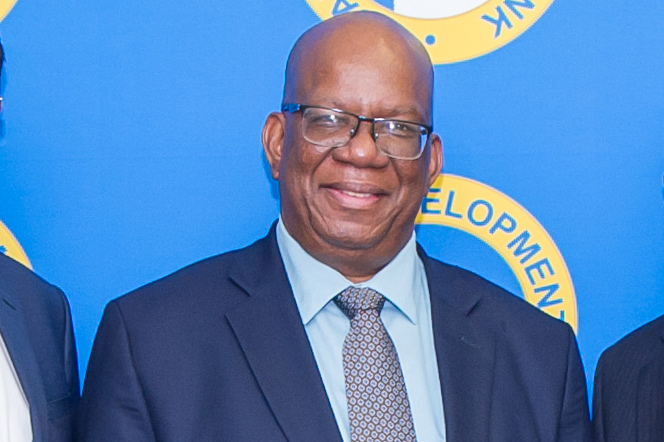Guyana is not rushing to access the remainder of the US$880M that the Islamic Development Bank (IsDB) says it can borrow to execute projects but will seek to determine which of many plans before it are vital and can give the best returns, Minister of Finance Winston Jordan says.
“We have to have bankable projects for the US$880M more that is available. Projects that can give us a return greater than the interest rate we have to pay back,” Jordan told Stabroek News on the sidelines of the sitting of the National Assembly on Thursday.
Further, he added, “Well only one project is under consideration. So far, before us is only GPL and GPL requires about US$110m but so far it is only US$20M (from the IsDB) that we are processing (for GPL).”
Recently, this newspaper reported that Guyana Power and Light (GPL) has received approval for a US$20 million loan from the IsDB and will use it to begin a planned upgrade project. The loan is only one of several that the utility company has been looking to secure as it sets out to meet the US$110 million needed for upgrades that would reduce power outages.
The Ministry of Finance later said in a letter to Stabroek News that it has applied for the monies but that it has not yet been approved and informed that the US$20M formed part of the $900M envelope that the ISDB has made available to it over a four-year period.
The Ministry of Finance has also sought to assure Guyana’s citizenry that it should not be concerned about the debt load as this country is “well within sustainable levels for borrowing as measured by the International Monetary Fund”.
“The Ministry of Finance wishes to assure readers that the aforementioned possible loan should not `spark further questions about the debt levels that Guyana is taking on.’ Guyana’s debt currently stands at 45.2% of its Gross Domestic Product (GDP). This is actually down from 46.4% in 2016 and 48.6% in 2015 and well below the 65.3% in 2010. Guyana’s debt to GDP is one of the lowest in the Caribbean – in 2016 we were the third lowest. It is well within sustainable levels for borrowing as measured by the International Monetary Fund,” the letter from the Ministry of Finance to Stabroek News recently stated.
“Financing is critical to build infrastructure that can help expand the productive base and support manufacturing. It is no secret that the high cost of power here is inimical to the manufacturing sector. Guyana’s economy cannot currently generate the resources to implement such projects; hence the need to incur debt. The Ministry of Finance has just unveiled its Public Private Partnership Framework which we hope will spur the Private Sector to help us find innovative solutions to fund the physical and social infrastructure of our country. Notwithstanding, the prospects for the economy are bright. The expanding GDP which will bring to bear more informed planning and investment decisions, is projected to rise rapidly in the near term, thereby further reducing the already manageable debt to GDP ratio,” the letter added.
Jordan had, back in April of this year, said that he will be looking to tap into the entire US$900M. “What I am saying is, if I can find projects, bankable projects, I will take the whole thing,” he had told a news conference.
His comments had followed a statement from his ministry which said projects have to be designed to access the funds. It added that the potential areas of collaboration between the Bank and the government here cover several development sectors, including agriculture, banking and finance, human development, energy and rural development.
“It is the largest resource envelope that would have been made available to Guyana by any multilateral bank,” he added, while noting that the cumulative sum of what is available from other development banks pale in comparison.
And even as government continues the process of designing projects in the several development sectors it outlined, it welcomed feedback from its citizenry.
“We welcome comments on what we consider to be the ministry’s prudent management of the economy as part of a democratic and transparent process; while encouraging debate based on facts and figures,” noted the Ministry of Finance letter.










